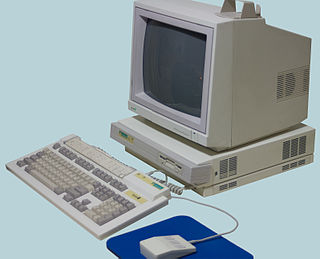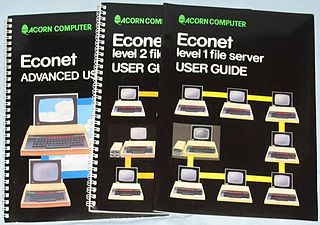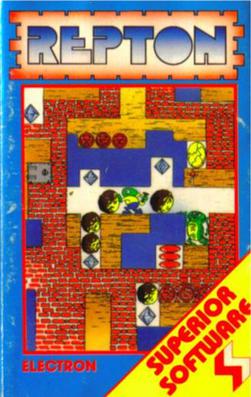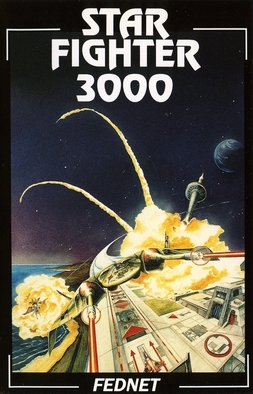BBC BASIC is an interpreted version of the BASIC programming language. It was developed by Acorn Computers Ltd when they were selected by the BBC to supply the computer for their BBC Literacy Project in 1981.

Acorn Archimedes is a series of personal computers designed by Acorn Computers in Cambridge, England that were launched in 1987. These systems were powered by Acorn's own ARM architecture processors and ran on proprietary operating systems: Arthur and RISC OS. The Archimedes family was sold until the mid-1990s.

RISC OS is a computer operating system originally designed by Acorn Computers Ltd in Cambridge, England. First released in 1987, it was designed to run on the ARM chipset, which Acorn had designed concurrently for use in its new line of Archimedes personal computers. RISC OS takes its name from the reduced instruction set computer (RISC) architecture it supports.
ARX was an unreleased Mach-like operating system written in Modula-2+ developed by Acorn Computers Ltd in the Acorn Research Centre (ARC) United Kingdom (UK) and later by Olivetti—which purchased Acorn—for Acorn's new Archimedes personal computers based on the ARM architecture reduced instruction set computer (RISC) central processing unit (CPUs).
Acornsoft was the software arm of Acorn Computers, and a major publisher of software for the BBC Micro and Acorn Electron. As well as games, it also produced a large number of educational titles, extra computer languages and business and utility packages – these included word processor VIEW and the spreadsheet ViewSheet supplied on ROM and cartridge for the BBC Micro/Acorn Electron and included as standard in the BBC Master and Acorn Business Computer.

RISC iX is a discontinued Unix operating system designed to run on a series of workstations based on the Acorn Archimedes microcomputer. Heavily based on 4.3BSD, it was initially completed in 1988, a year after Arthur but before RISC OS. It was introduced in the ARM2-based R140 workstation in 1989, followed up by the ARM3-based R200-series workstations in 1990.

Econet was Acorn Computers's low-cost local area network system, based on a CSMA-CD serial protocol carried over a five-wire data bus, intended for use by schools and small businesses. It was widely used in those areas, and was supported by a large number of different computer and server systems produced both by Acorn and by other companies.

Repton is a video game originally developed by 16-year-old Briton Tim Tyler for the BBC Micro and Acorn Electron and released by Superior Software in 1985. The game spawned a series of follow up games which were released throughout the 1980s. The series sold around 125,000 copies between 1985 and 1990 with Repton 2 selling 35,000 itself. The games have since been remade for several modern systems, including iRepton for the iPhone / iPod Touch in 2010, and Android Repton 1, Android Repton 2 and Android Repton 3 from 2016 to 2018.
Xara is an international software company founded in 1981, with an HQ in Berlin and development office in Hemel Hempstead, UK. It has developed software for a variety of computer platforms, in chronological order: the Acorn Atom, BBC Micro, Z88, Atari ST, Acorn Archimedes, Microsoft Windows, Linux, and more recently web browser-based services.
The Fourth Dimension (4D) was a major video game publisher for the BBC Micro, Acorn Electron, Acorn Archimedes and RiscPC between 1989 and 1998. Previously, The Fourth Dimension had been known as Impact Software, which specialised mainly in BBC Micro games. Some of 4D's staff had worked for Superior Software. Notable release included Cyber Chess, Stunt Racer 2000, Galactic Dan and Chocks Away.
Designer Castles was a software title for the BBC Micro and later Acorn Archimedes range of computers.

Star Fighter or Star Fighter 3000 is a 3D flight-based shoot-em-up developed and published by UK company Fednet Software, and released in 1994 for the Acorn Archimedes. The gameplay is mission based and involves elements of strategy and planning. The player can order wingmen to fly in formation and attack specific targets.

The Micro User was a British specialist magazine catering to users of the BBC Microcomputer series, Acorn Electron, Acorn Archimedes and, to a limited extent, the Cambridge Z88. It had a comprehensive mix of reviews of games, application software, and the latest Acorn computers; type-in programs, a correspondence page offering help with computer problems, and approachable technical articles on programming and the BBC Micro's internals.

Acorn C/C++ is a set of C/C++ programming tools for use under the RISC OS operating system. The tools use the Norcroft compiler suite and were authored by Codemist and Acorn Computers. The tools provide some facilities offered by a fully integrated development environment.
RISC OS, the computer operating system developed by Acorn Computers for their ARM-based Acorn Archimedes range, was originally released in 1987 as Arthur 0.20, and soon followed by Arthur 0.30, and Arthur 1.20. The next version, Arthur 2, became RISC OS 2 and was completed and made available in April 1989. RISC OS 3 was released with the very earliest version of the A5000 in 1991 and contained a series of new features. By 1996 RISC OS had been shipped on over 500,000 systems.
Gordon J. Key authored video game software for the Acorn BBC Micro, Electron and RISC OS platforms in the 1980s and 1990s. His most well-known works were published by The Fourth Dimension. He is also credited with additional programming routines in FedNet's futuristic flight combat game Star Fighter 3000 (1994), and authored Party Machine for the Amstrad CPC.

Archive is a membership magazine for users of the Acorn Archimedes personal computer and related RISC OS hardware. It is the oldest and longest-running RISC OS magazine.
Impression is a desktop publishing application for RISC OS systems. It was developed by Computer Concepts and initially made available in pre-release form during 1989, having been demonstrated in February 1989 at the Which? Computer Show and subsequently announced as being available from June 1989. The "completed" version was eventually delivered on 18th January 1990.

The Dungeon is a single player real-time role-playing video game featuring a 3D first-person perspective with texture mapping. It was published by The Fourth Dimension for the Acorn Archimedes home computer in 1993.
William Tunstall-Pedoe FREng is a British entrepreneur and computer scientist focussed on Artificial Intelligence. He was the founder and CEO of Evi, a pioneering Voice Assistant, Semantic search and Question answering startup, and following the acquisition of Evi by Amazon was a key member of the team that built and launched Amazon Alexa. He is currently the founder and CEO of Unlikely AI, a British start-up focussed on producing safe, general intelligence using Neurosymbolic methods.










